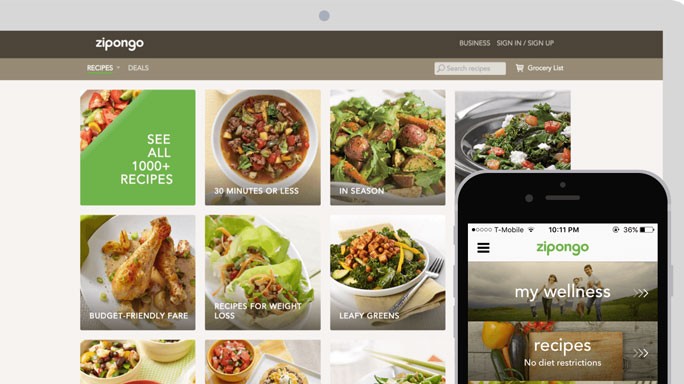A growing number of companies are offering their employees digital tools to help improve their eating habits in hopes of increasing productivity, reducing sick days and cutting health care costs.
With an app and a website, Zipongo, a small digital start-up, is aimed at helping employees navigate a company’s cafeteria menu to find choices that best meet a set of preferences and health goals set by the workers themselves.
But Zipongo also extends its reach to takeout meals and the home kitchen, offering recipes, shopping lists and discounts on grocery items like fruits and vegetables.
Since it made its debut in 2011, Zipongo has connected with some 125 companies to let employees try it, although none have made it mandatory.
While Google was an early adopter a few years ago, IBM was among the most recent and began offering Zipongo to its 10,000 employees in January. Like other companies, IBM has long worked to steer its employees to healthier eating, even using a “traffic light” system to indicate which cafeteria foods might be good choices. In 2007, the company offered a $150 cash rebate for IBM families recording their healthier eating habits in a confidential online system for eight weeks.
“We strongly believe eating healthy is a social endeavor, both at work and at home,” said Dr. Kyu Rhee, chief health officer at IBM. “It makes no sense if you eat healthy at the office and then eat badly at home.”
Zipongo is also working with entities like Virgin Pulse and Benefitfocus, and health plans like Blue Cross Blue Shield of South Carolina and Independent Health. So-called “wellness” companies are now benefiting from a provision in the federal health care law that requires insurers to cover obesity screenings and nutritional counseling for many employees.
See more at:
The New York Times





